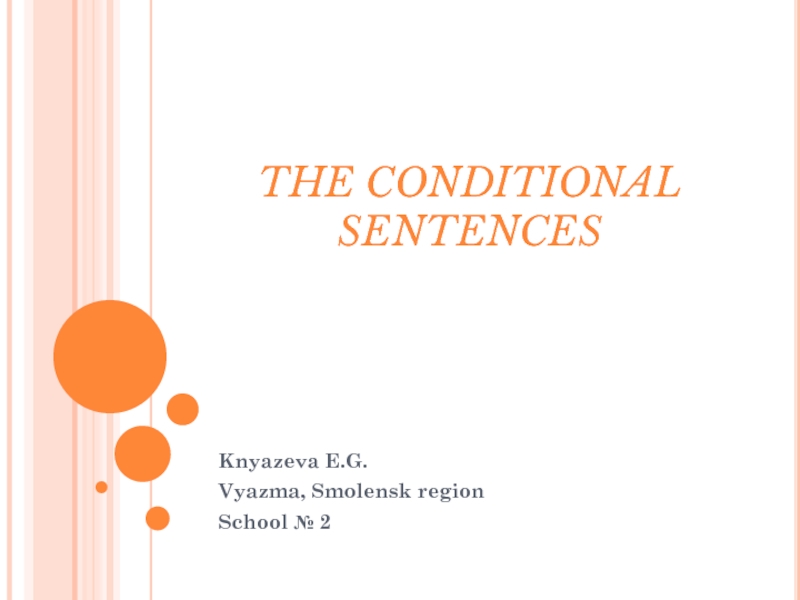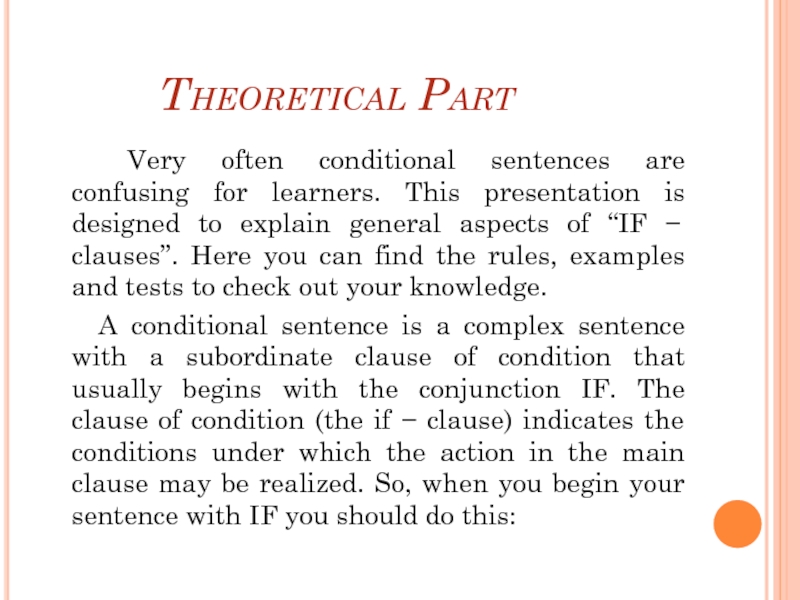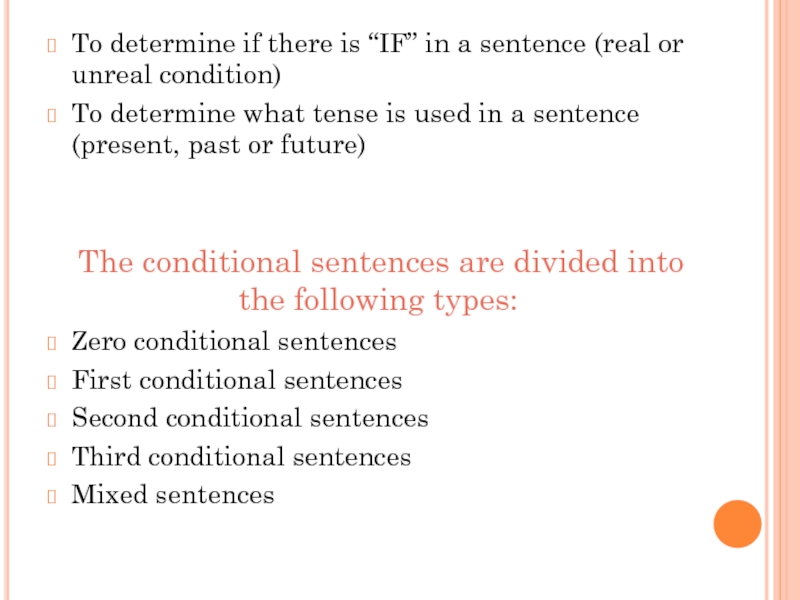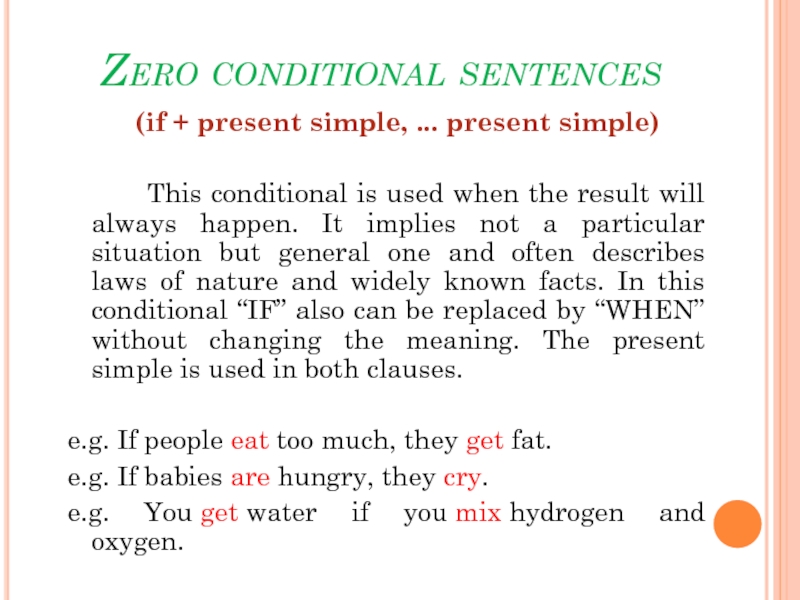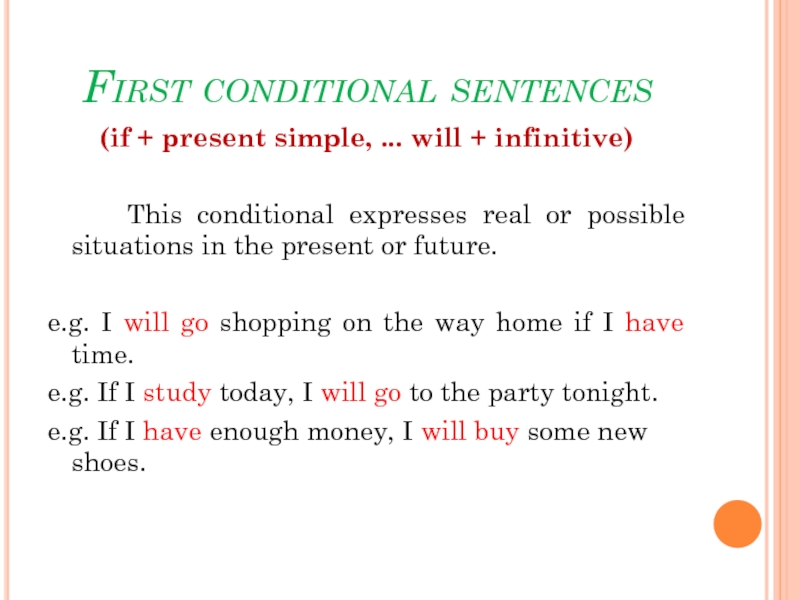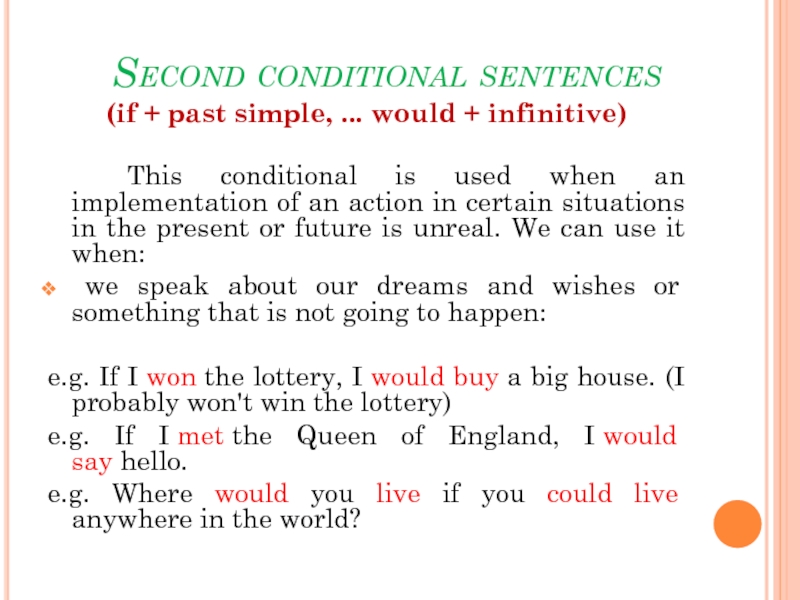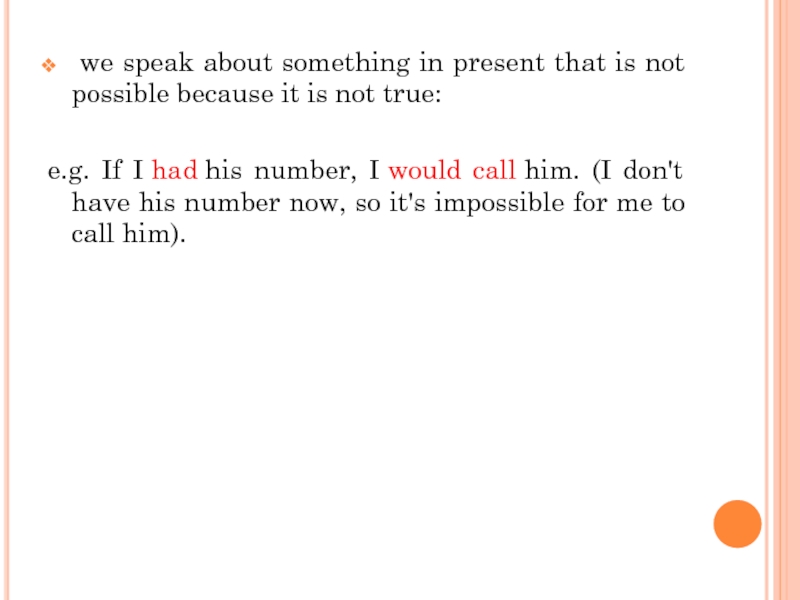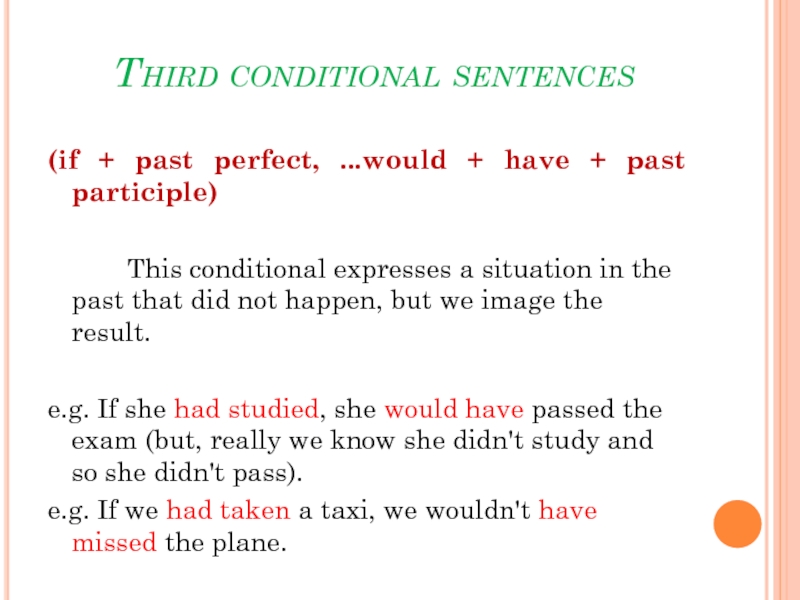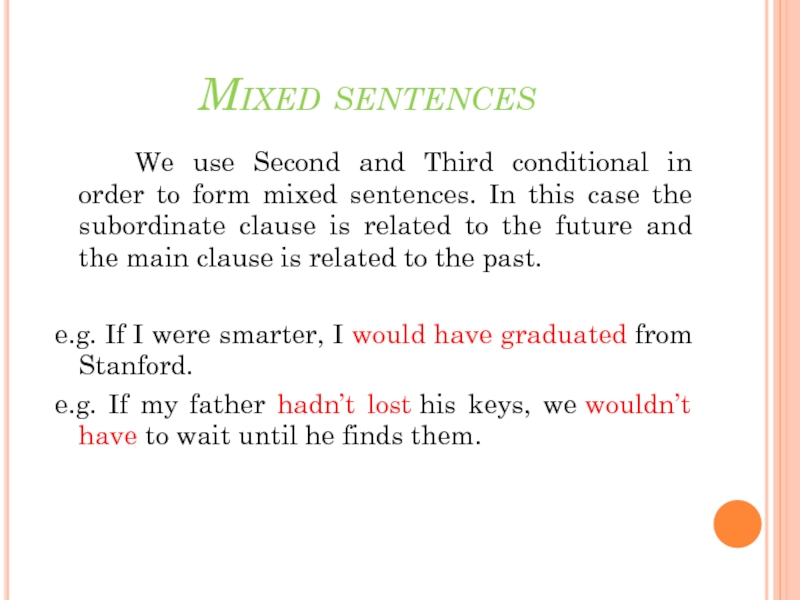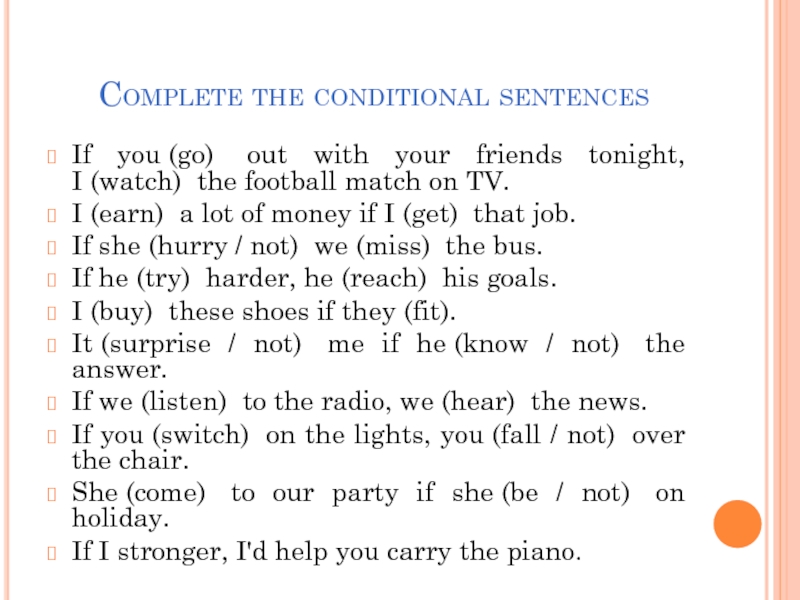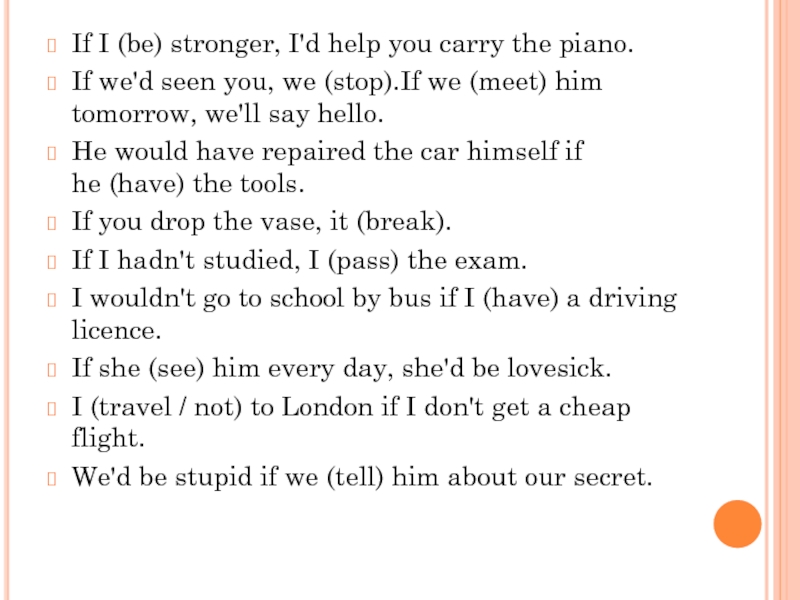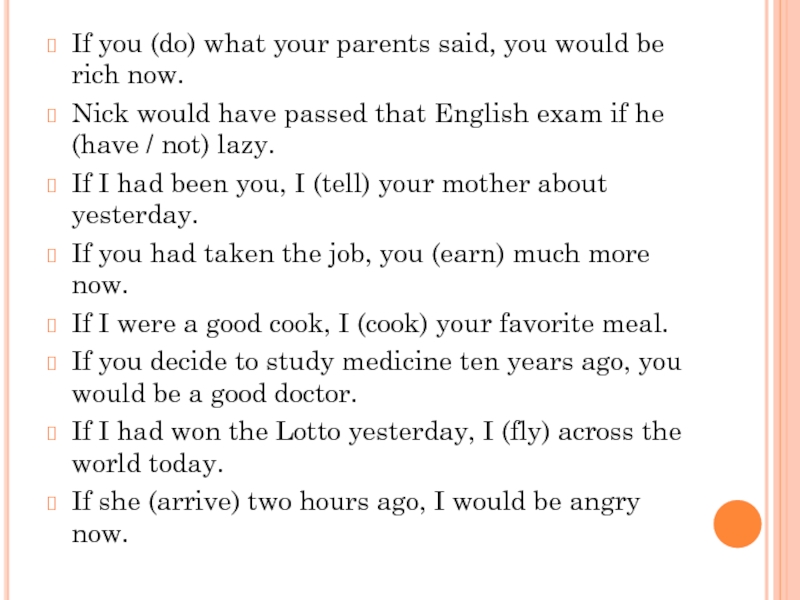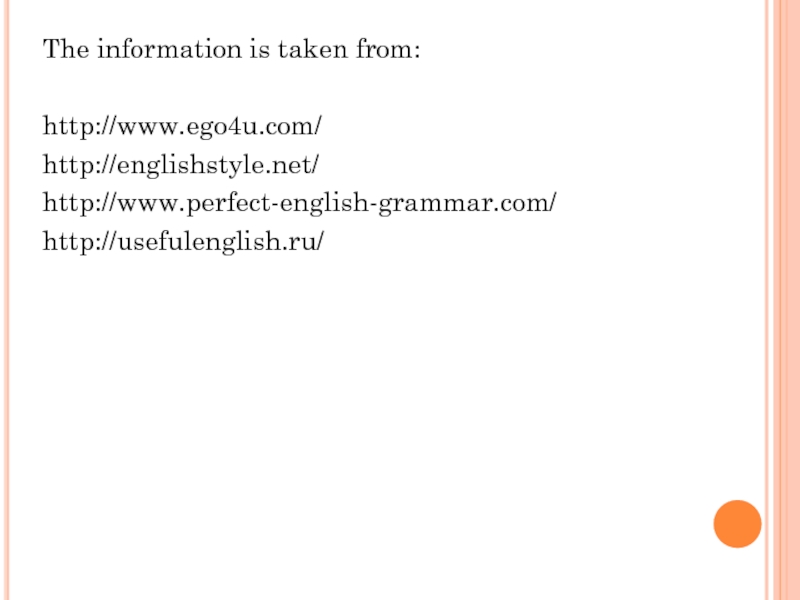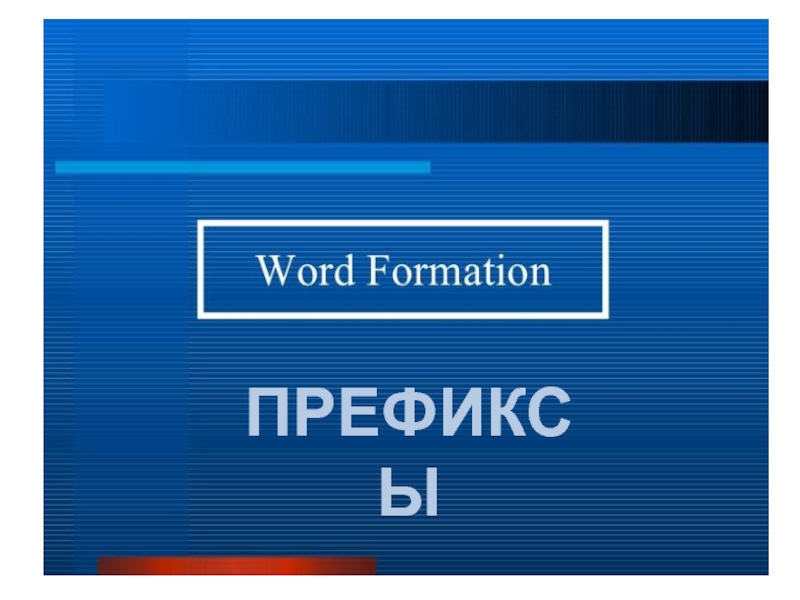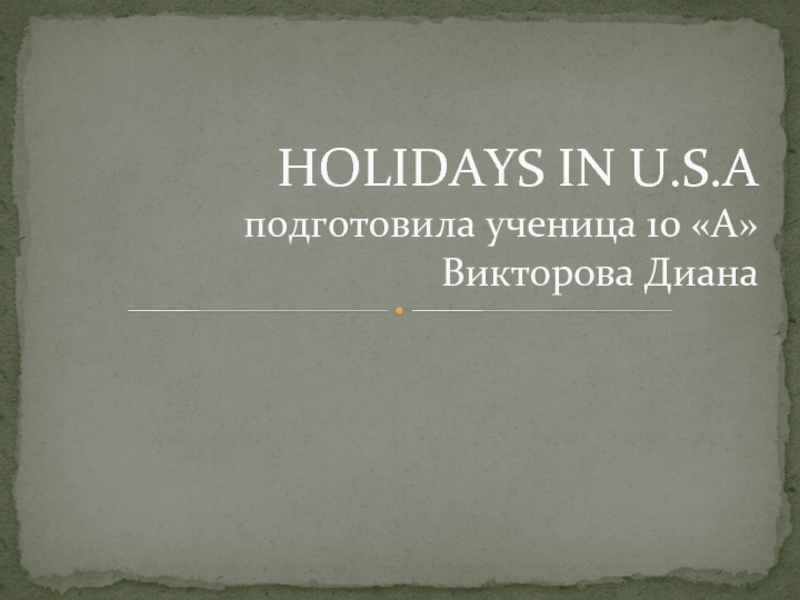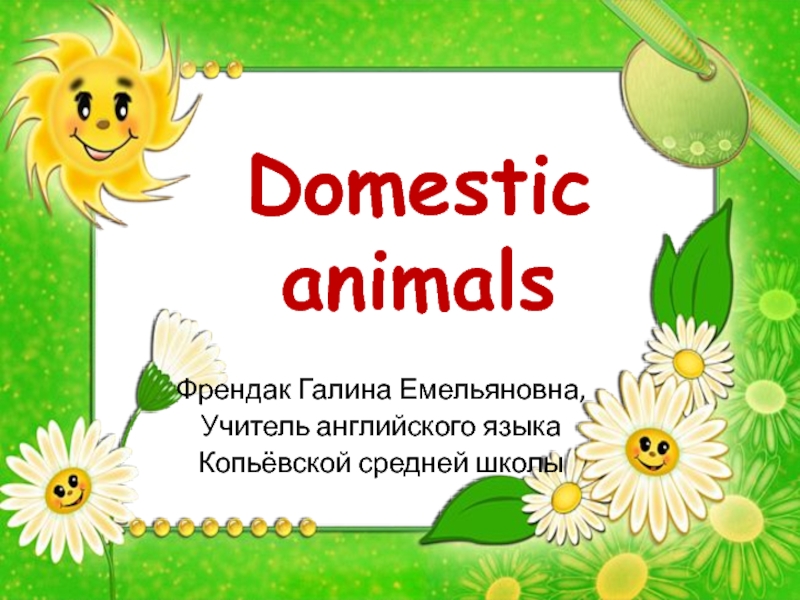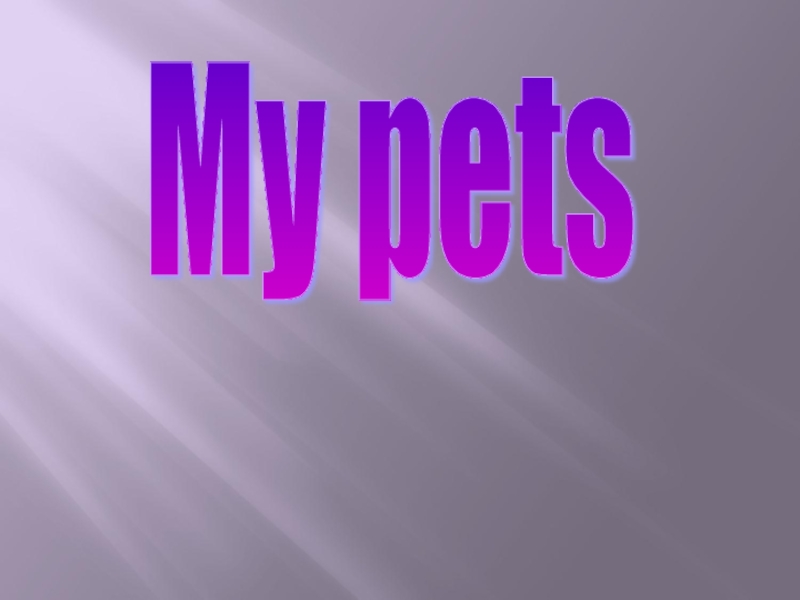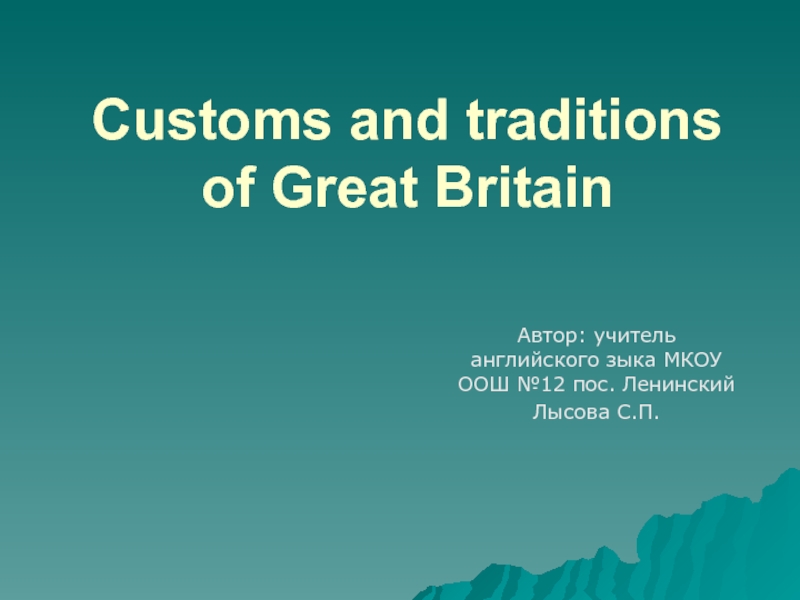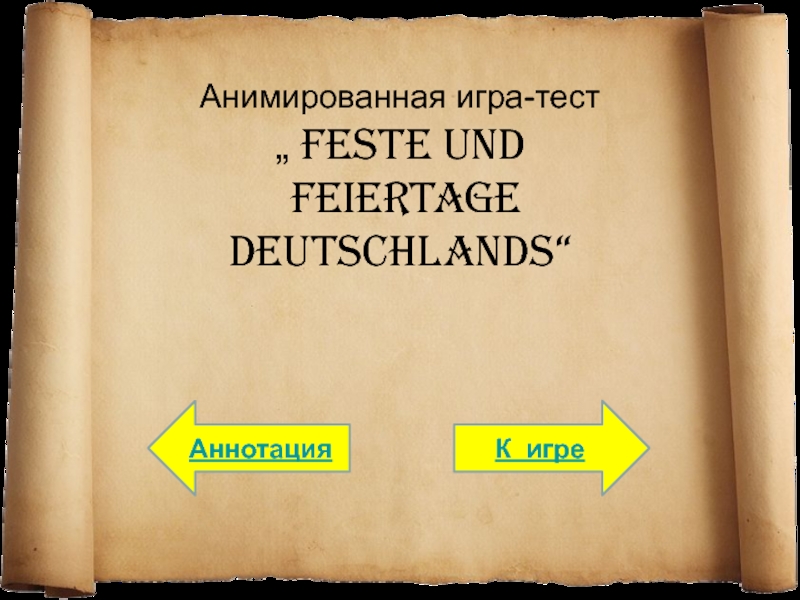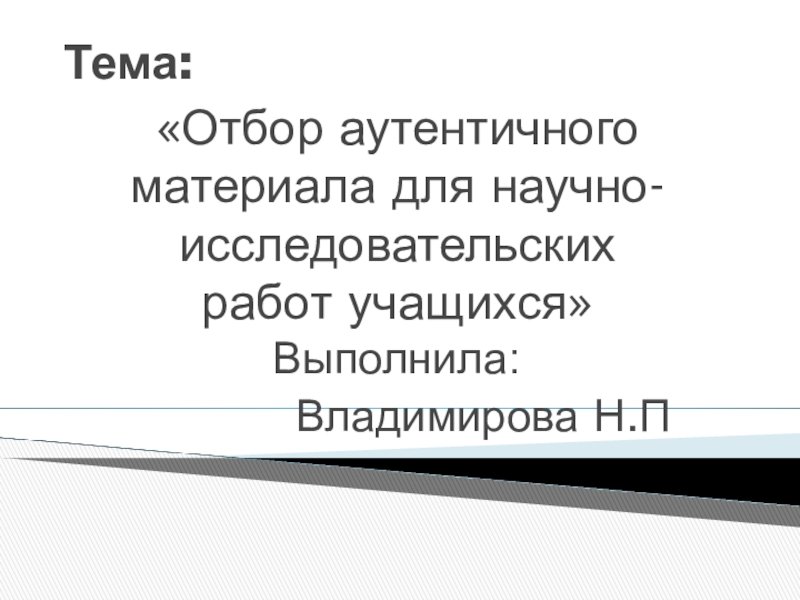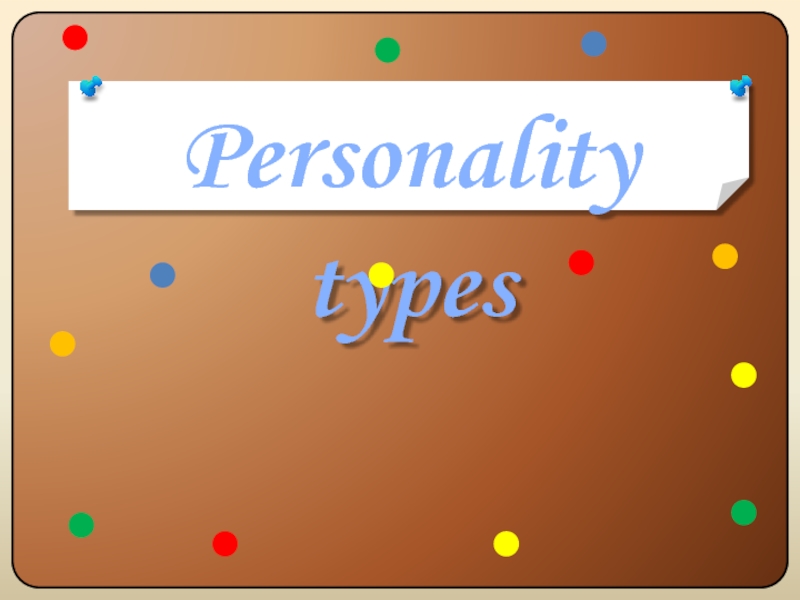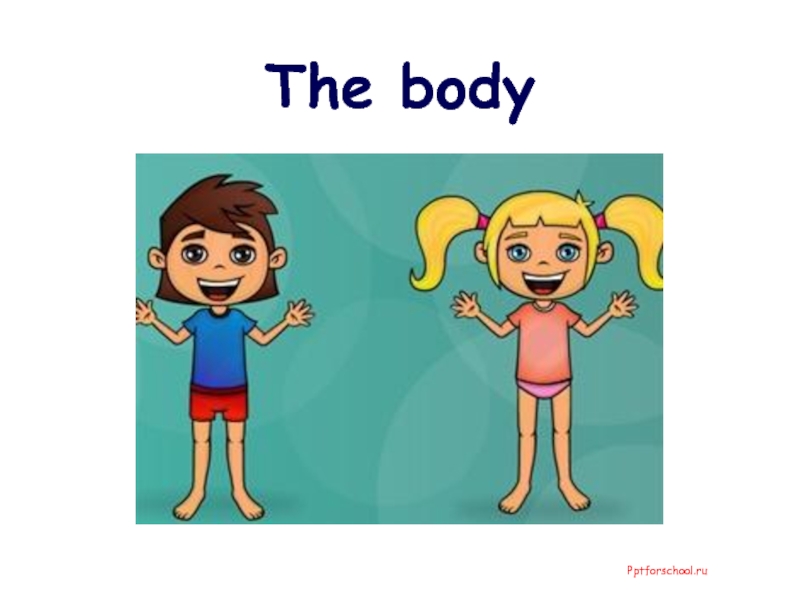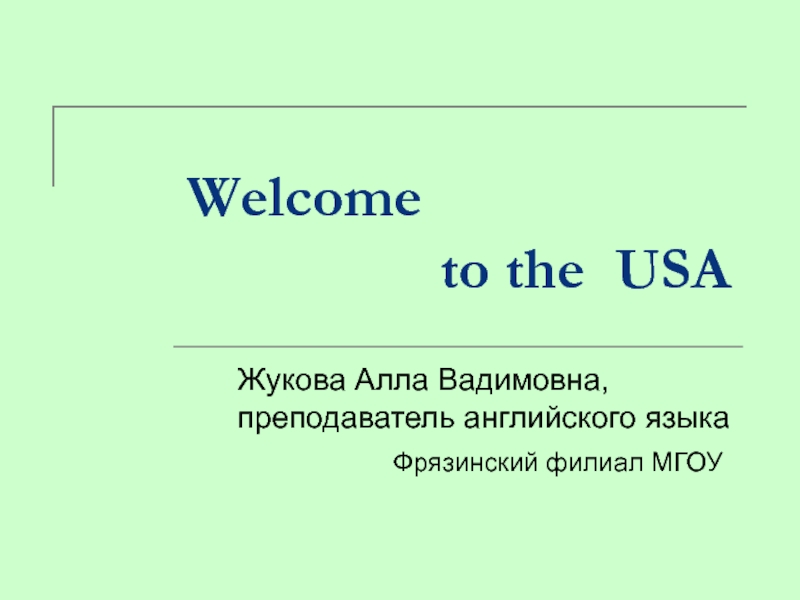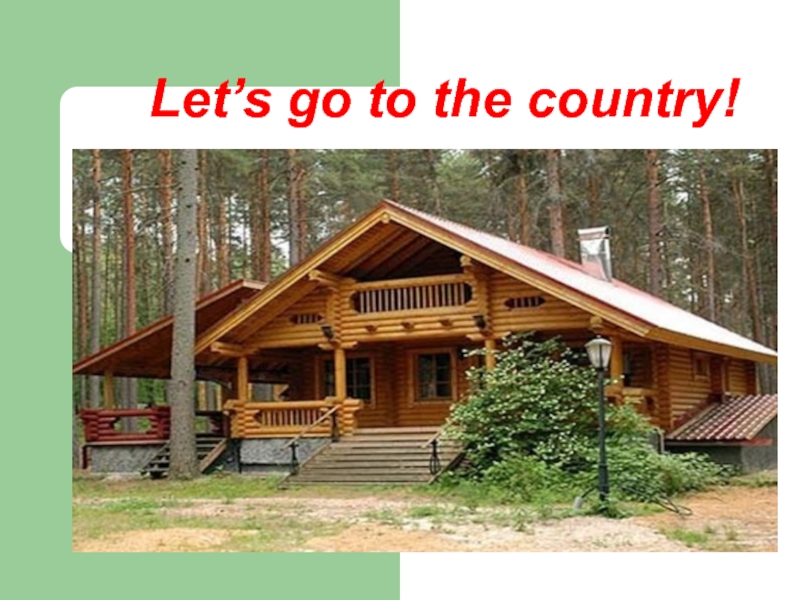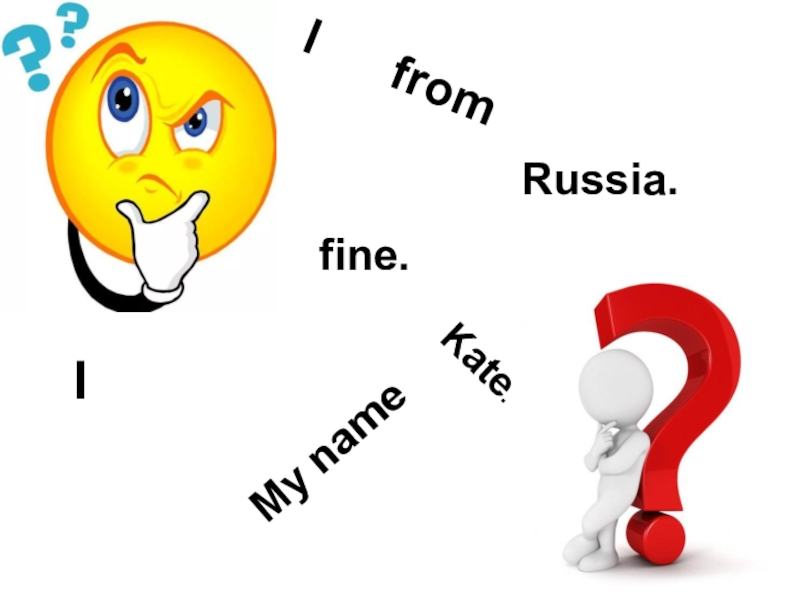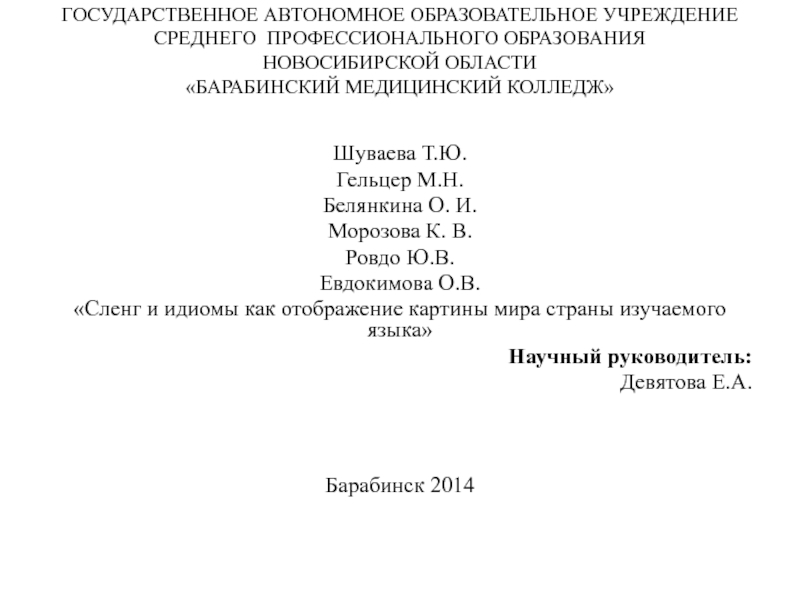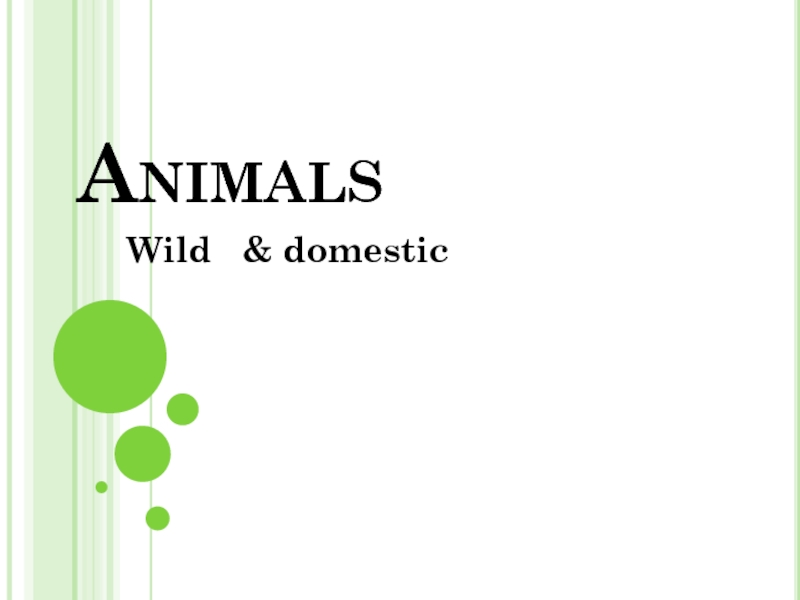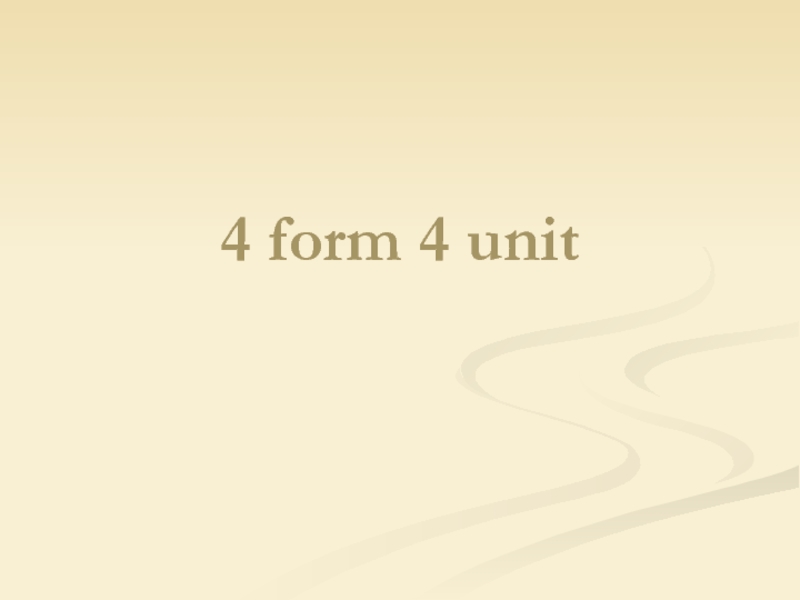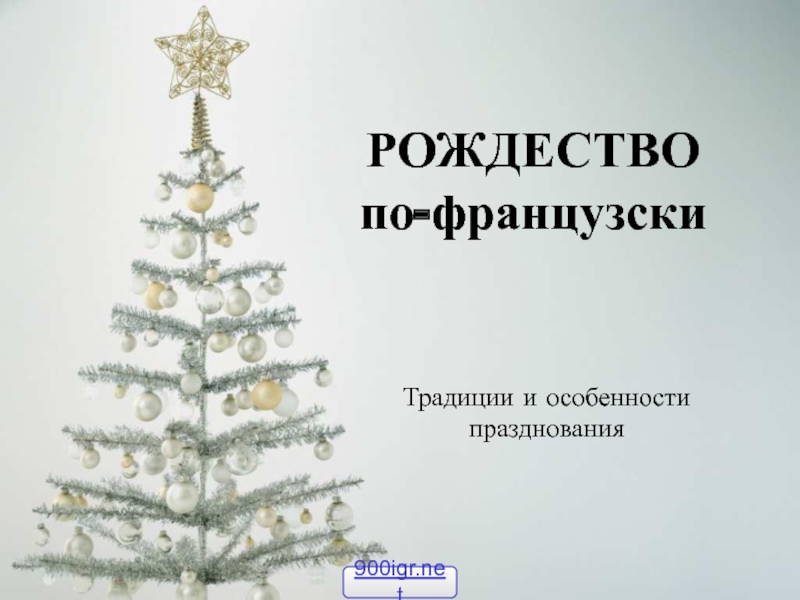Разделы презентаций
- Разное
- Английский язык
- Астрономия
- Алгебра
- Биология
- География
- Геометрия
- Детские презентации
- Информатика
- История
- Литература
- Математика
- Медицина
- Менеджмент
- Музыка
- МХК
- Немецкий язык
- ОБЖ
- Обществознание
- Окружающий мир
- Педагогика
- Русский язык
- Технология
- Физика
- Философия
- Химия
- Шаблоны, картинки для презентаций
- Экология
- Экономика
- Юриспруденция
Теоретический и контрольно-тестовый материал по теме "Условные предложения"
Содержание
- 1. Теоретический и контрольно-тестовый материал по теме "Условные предложения"
- 2. Theoretical Part
- 3. To determine if there is “IF” in
- 4. Zero conditional sentences (if + present
- 5. First conditional sentences(if + present simple, ...
- 6. Second conditional sentences(if + past simple, ...
- 7. we speak about something in present
- 8. Third conditional sentences(if + past perfect, ...would
- 9. Mixed sentences We use Second and Third
- 10. Complete the conditional sentences If you (go) out
- 11. If I (be) stronger, I'd help you carry
- 12. If you (do) what your parents said,
- 13. The information is taken from:http://www.ego4u.com/http://englishstyle.net/http://www.perfect-english-grammar.com/http://usefulenglish.ru/
- 14. Скачать презентанцию
Theoretical Part Very often conditional sentences are confusing for learners. This presentation is designed to explain general aspects of “IF − clauses”. Here you can
Слайды и текст этой презентации
Слайд 2 Theoretical Part
Very often
conditional sentences are confusing for learners. This presentation is designed
to explain general aspects of “IF − clauses”. Here you can find the rules, examples and tests to check out your knowledge.A conditional sentence is a complex sentence with a subordinate clause of condition that usually begins with the conjunction IF. The clause of condition (the if − clause) indicates the conditions under which the action in the main clause may be realized. So, when you begin your sentence with IF you should do this:
Слайд 3To determine if there is “IF” in a sentence (real
or unreal condition)
To determine what tense is used in a
sentence (present, past or future)The conditional sentences are divided into the following types:
Zero conditional sentences
First conditional sentences
Second conditional sentences
Third conditional sentences
Mixed sentences
Слайд 4Zero conditional sentences
(if + present simple, ... present
simple)
This conditional is used when the
result will always happen. It implies not a particular situation but general one and often describes laws of nature and widely known facts. In this conditional “IF” also can be replaced by “WHEN” without changing the meaning. The present simple is used in both clauses.e.g. If people eat too much, they get fat.
e.g. If babies are hungry, they cry.
e.g. You get water if you mix hydrogen and oxygen.
Слайд 5First conditional sentences
(if + present simple, ... will + infinitive)
This conditional expresses real or possible situations in the
present or future.e.g. I will go shopping on the way home if I have time.
e.g. If I study today, I will go to the party tonight.
e.g. If I have enough money, I will buy some new shoes.
Слайд 6Second conditional sentences
(if + past simple, ... would + infinitive)
This conditional is used when an implementation of an
action in certain situations in the present or future is unreal. We can use it when:we speak about our dreams and wishes or something that is not going to happen:
e.g. If I won the lottery, I would buy a big house. (I probably won't win the lottery)
e.g. If I met the Queen of England, I would say hello.
e.g. Where would you live if you could live anywhere in the world?
Слайд 7 we speak about something in present that is not
possible because it is not true:
e.g. If I had his number, I would
call him. (I don't have his number now, so it's impossible for me to call him).Слайд 8Third conditional sentences
(if + past perfect, ...would + have +
past participle)
This conditional expresses a situation in the
past that did not happen, but we image the result.e.g. If she had studied, she would have passed the exam (but, really we know she didn't study and so she didn't pass).
e.g. If we had taken a taxi, we wouldn't have missed the plane.
Слайд 9Mixed sentences
We use Second and Third conditional in order
to form mixed sentences. In this case the subordinate clause
is related to the future and the main clause is related to the past.e.g. If I were smarter, I would have graduated from Stanford.
e.g. If my father hadn’t lost his keys, we wouldn’t have to wait until he finds them.
Слайд 10Complete the conditional sentences
If you (go) out with your friends
tonight, I (watch) the football match on TV.
I (earn) a lot of
money if I (get) that job.If she (hurry / not) we (miss) the bus.
If he (try) harder, he (reach) his goals.
I (buy) these shoes if they (fit).
It (surprise / not) me if he (know / not) the answer.
If we (listen) to the radio, we (hear) the news.
If you (switch) on the lights, you (fall / not) over the chair.
She (come) to our party if she (be / not) on holiday.
If I stronger, I'd help you carry the piano.
Слайд 11If I (be) stronger, I'd help you carry the piano.
If we'd
seen you, we (stop).If we (meet) him tomorrow, we'll say hello.
He would
have repaired the car himself if he (have) the tools.If you drop the vase, it (break).
If I hadn't studied, I (pass) the exam.
I wouldn't go to school by bus if I (have) a driving licence.
If she (see) him every day, she'd be lovesick.
I (travel / not) to London if I don't get a cheap flight.
We'd be stupid if we (tell) him about our secret.
Слайд 12If you (do) what your parents said, you would be
rich now.
Nick would have passed that English exam if he
(have / not) lazy.If I had been you, I (tell) your mother about yesterday.
If you had taken the job, you (earn) much more now.
If I were a good cook, I (cook) your favorite meal.
If you decide to study medicine ten years ago, you would be a good doctor.
If I had won the Lotto yesterday, I (fly) across the world today.
If she (arrive) two hours ago, I would be angry now.
